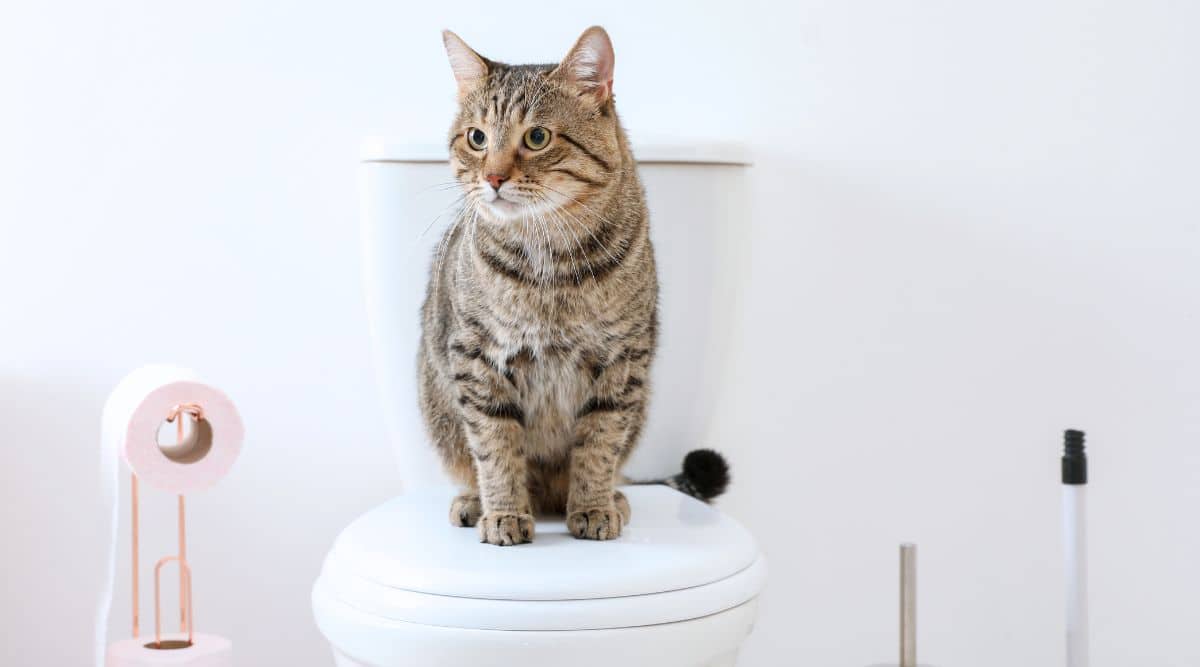Why Flushing Cat Poop Down Your Toilet Can Cause Problems - Recommendations for Proper Handling
Why Flushing Cat Poop Down Your Toilet Can Cause Problems - Recommendations for Proper Handling
Blog Article
Right here down the page you will discover some worthwhile help and advice on the subject of How to Dispose of Cat Poop and Litter Without Plastic Bags.

Introduction
As cat proprietors, it's important to be mindful of just how we throw away our feline pals' waste. While it may appear convenient to purge feline poop down the commode, this method can have detrimental effects for both the environment and human wellness.
Environmental Impact
Purging pet cat poop introduces unsafe microorganisms and bloodsuckers into the water system, posturing a substantial risk to water environments. These contaminants can adversely affect marine life and concession water quality.
Wellness Risks
In addition to ecological worries, flushing feline waste can also present health threats to humans. Pet cat feces may consist of Toxoplasma gondii, a parasite that can trigger toxoplasmosis-- a potentially serious ailment, especially for expectant women and individuals with damaged immune systems.
Alternatives to Flushing
Luckily, there are more secure and much more accountable methods to dispose of cat poop. Think about the complying with options:
1. Scoop and Dispose in Trash
The most typical technique of taking care of pet cat poop is to scoop it right into a naturally degradable bag and toss it in the trash. Be sure to use a dedicated clutter inside story and throw away the waste quickly.
2. Use Biodegradable Litter
Go with eco-friendly feline litter made from products such as corn or wheat. These litters are eco-friendly and can be securely dealt with in the garbage.
3. Bury in the Yard
If you have a backyard, think about hiding feline waste in a marked area far from vegetable yards and water resources. Make sure to dig deep adequate to prevent contamination of groundwater.
4. Set Up a Pet Waste Disposal System
Buy an animal waste disposal system particularly created for pet cat waste. These systems use enzymes to break down the waste, minimizing smell and ecological impact.
Conclusion
Accountable animal ownership prolongs past giving food and shelter-- it also involves appropriate waste administration. By avoiding flushing feline poop down the bathroom and selecting alternate disposal techniques, we can lessen our ecological footprint and protect human health.
Why You Should Never Flush Cat Poop Down the Toilet
A rose by any other name might smell as sweet, but not all poop is created equal. Toilets, and our sewage systems, are designed for human excrement, not animal waste. It might seem like it couldn’t hurt to toss cat feces into the loo, but it’s not a good idea to flush cat poop in the toilet.
First and foremost, assuming your cat uses a litter box, any waste is going to have litter on it. And even the smallest amount of litter can wreak havoc on plumbing.
Over time, small amounts build up, filling up your septic system. Most litter sold today is clumping; it is made from a type of clay that hardens when it gets wet. Ever tried to scrape old clumps from the bottom of a litter box? You know just how cement-hard it can get!
Now imagine just a small clump of that stuck in your pipes. A simple de-clogger like Drano isn’t going to cut it. And that means it’s going to cost you big time to fix it.
Parasitic Contamination
Believe it or not, your healthy kitty may be harboring a nasty parasite. Only cats excrete Toxoplasma in their feces. Yet it rarely causes serious health issues in the cats that are infected. Most people will be fine too if infected. Only pregnant women and people with compromised immune systems are at risk. (If you’ve ever heard how women who are expecting are excused from litter cleaning duty, Toxoplasma is why.)
But other animals may have a problem if infected with the parasite. And human water treatment systems aren’t designed to handle it. As a result, the systems don’t remove the parasite before discharging wastewater into local waterways. Fish, shellfish, and other marine life — otters in particular — are susceptible to toxoplasma. If exposed, most will end up with brain damage and many will die.
Depending on the species of fish, they may end up on someone’s fish hook and, ultimately on someone’s dinner plate. If that someone has a chronic illness, they’re at risk.
Skip the Toilet Training
We know there are folks out there who like to toilet train their cats. And we give them props, it takes a lot of work. But thanks to the toxoplasma, it’s not a good idea.

Do you appreciate more info about Can You Flush Cat Poop Down The Toilet?? Write a comment down the page. We would be glad to listen to your opinion about this blog. We are looking forward to see you back again before long. Sharing is caring. Helping people is fun. Thank you for taking the time to read it.
Click Here! Report this page